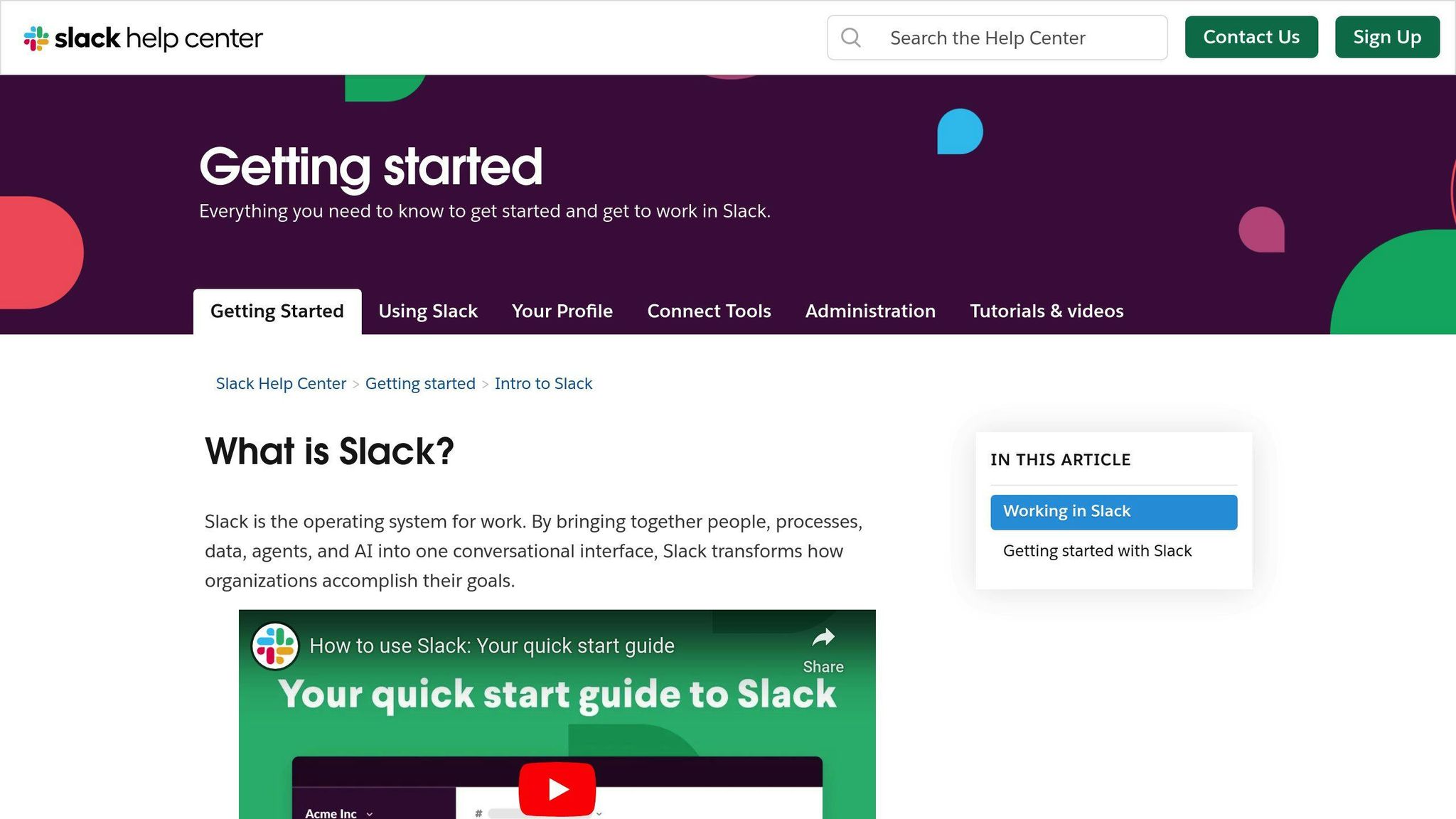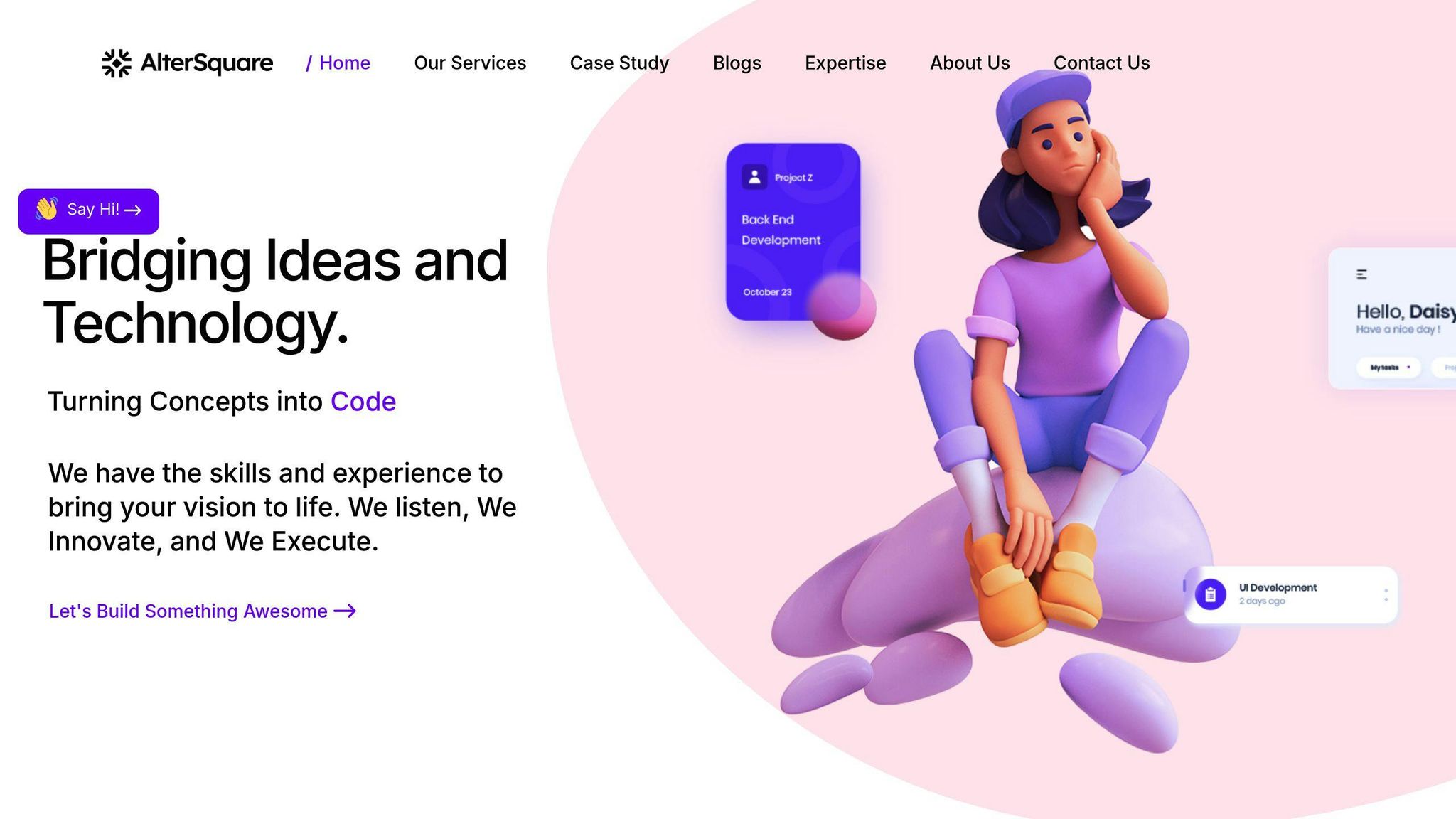Why Experienced Founders Choose Outsourced Development for Their Next MVP
Huzefa Motiwala January 20, 2025
Outsourcing MVP development is a game-changer for many experienced founders. Here’s why:
- Faster Launch: Skip hiring delays and use expert teams to build MVPs in as little as 90 days.
- Access to Expertise: Outsourced teams bring specialized skills in areas like AI, blockchain, and UI/UX.
- Lower Costs: Save on office space, recruitment, and overhead expenses.
- Focus on Growth: Founders can concentrate on scaling, customer acquisition, and strategy.
Startups like Slack, Alibaba, and AppSumo thrived by outsourcing early development. With clear communication, structured processes, and the right partner, outsourcing helps founders quickly validate ideas, reduce risks, and enter the market faster.
Should I outsource my startup’s MVP development?
Why Founders Turn to Outsourcing for MVP Development
More and more experienced founders are turning to outsourcing as a smart move for MVP development, especially when launching their second or third product. In fact, 37% of businesses now opt to outsource services like MVP development [4]. This shift shows how founders are rethinking their approach to building products.
Speeding Up the Development Process
Outsourcing can dramatically shorten the time it takes to get a product to market. Established teams with tested workflows eliminate the need for lengthy recruitment and onboarding. For example, AlterSquare’s I.D.E.A.L Delivery Framework helps startups build functional MVPs in just 90 days, a huge improvement over traditional timelines. Besides saving time, outsourcing gives you access to skilled professionals who can raise the bar on your MVP’s quality.
Accessing Expert Skills and Knowledge
Building an in-house team from scratch can take months. Outsourcing skips this step, offering instant access to experts in fields like UI/UX design or cutting-edge technologies such as AI and blockchain. Global teams bring fresh perspectives and creative solutions, often leading to better results for your MVP.
Reducing Development Costs
Outsourcing can significantly lower expenses by cutting out the need for office space, recruitment, and other overhead costs. Take AppSumo, for example. They outsourced development to a Pakistani developer to test their business idea, keeping initial costs low [1]. With these savings, founders can invest more in scaling and entering new markets.
Allowing Founders to Focus on Growth
When development is handled by specialists and costs are kept in check, founders can focus on scaling their business. This is especially helpful for non-technical founders, who can dedicate their energy to customer acquisition, building partnerships, and attracting investors. Alibaba followed this approach by outsourcing its early platform development to a U.S. firm, allowing the company to focus on business strategy and vendor relationships [1].
Addressing Common Concerns About Outsourcing
Maintaining High-Quality Results
Delivering high-quality outsourced MVPs requires clear processes and regular checkpoints. AlterSquare’s I.D.E.A.L Delivery Framework is a great example of how structured testing cycles and milestone tracking can ensure quality. Their 90-day MVP development plan includes specific quality checks at every stage.
Founders who achieve success often rely on these practices:
- Daily reviews, automated testing, and weekly demos to consistently validate quality.
- Bi-weekly assurance sprints and architecture reviews to safeguard code integrity.
That said, maintaining quality is just one part of the equation. Strong communication systems are equally essential for successful outsourcing.
Improving Communication with Teams
Modern tools make it easier than ever to stay connected with distributed teams. A combination of real-time and asynchronous communication ensures everyone stays on the same page.
| Communication Type | Tools & Practices |
|---|---|
| Real-time | Slack, MS Teams: Daily standups, dedicated channels |
| Async | Trello, Jira: Clear task descriptions, decision logs |
| Visual | Figma, Miro: Wireframes, flowcharts |
| Progress Tracking | GitHub, GitLab: Regular commits, detailed PRs |
Good communication also helps tackle the challenges of working across different time zones, making global collaboration much smoother.
Handling Time Zone Differences
Time zone differences don’t have to be a hurdle – they can even be an advantage when managed well. The key lies in setting up an effective workflow:
- Establish core overlap hours (usually 3–4 hours) for essential collaboration.
- Use asynchronous tools for updates that don’t require immediate attention.
- Keep a shared knowledge base to document all decisions.
"The key to successful outsourcing isn’t just about finding the right talent – it’s about creating systems that enable seamless collaboration across time zones and cultures", says Taher Pardawala, co-founder of AlterSquare.
sbb-itb-51b9a02
How to Choose and Manage Outsourced Development Teams
Once you’ve addressed concerns like quality and communication, the next step is selecting the right partner and managing them effectively.
Tips for Picking the Right Partner
Nearly half of businesses outsource MVP development to tap into specialized expertise [3]. When evaluating potential partners, focus on these key areas:
| Evaluation Area | What to Look For |
|---|---|
| Technical Expertise | Proven experience with similar MVPs and alignment with your required tech stack |
| Track Record | Verified client testimonials and measurable success stories |
| Development Process | Transparent methods with clear quality checkpoints |
| Business Terms | Clear pricing, IP protection, and scalability options |
AlterSquare’s I.D.E.A.L Delivery Framework is an example of a structured approach, offering defined phases with built-in quality checks.
Managing Outsourced Teams Effectively
The IT outsourcing market is expected to grow to $777 billion by 2028 [3], highlighting the importance of strong remote team management.
Here are some strategies to keep your outsourced team on track:
- Set Clear Project Parameters: Define the project scope, timelines, and deliverables in detail. Use collaborative tools to manage designs and code efficiently.
- Establish Performance Metrics: Track metrics like sprint speed, code quality, and bug resolution rates. Regular performance reviews ensure accountability.
- Build Team Integration: Encourage collaboration with regular cross-team meetings and open communication. Use tools to simplify task management and keep everyone aligned.
For smooth project management, rely on tools designed for:
- Task and project tracking
- Version control and code reviews
- Real-time collaboration
- Knowledge sharing and documentation
With the right partner and effective management, startups like Slack and Alibaba have shown how outsourcing can drive success.
Examples of Startups That Succeeded with Outsourcing
Outsourcing has proven to be more than just a way to cut costs – it can also drive growth and help startups achieve their goals faster.
How Slack Developed Its Early Product

Slack turned to outsourcing for its initial development, allowing the company to focus on its business model and strategy. This decision helped them scale quickly into a $27.7 billion platform [2]. By bringing in outside expertise, Slack stayed flexible and met its technical needs efficiently.
Alibaba‘s Outsourced Beginnings

Alibaba outsourced the creation of its website to a U.S.-based firm. This move gave them access to global expertise while their internal team concentrated on acquiring local vendors [1]. The result? A strong platform that positioned Alibaba as a leader in the global e-commerce space.
| Benefit | Result |
|---|---|
| Strong Technical Base | Built a globally competitive platform |
| Focused Resources | Internal teams prioritized local vendor relationships |
| Market Impact | Dominance in both local and international markets |
AlterSquare‘s 90-Day MVP Approach

AlterSquare uses its I.D.E.A.L Framework to deliver minimum viable products (MVPs) in just 90 days. This method emphasizes scalable architecture, quick feature rollouts, and thorough market testing, helping startups reduce risks and adjust based on feedback.
The framework is divided into three main stages:
| Phase | Key Focus | Result |
|---|---|---|
| Planning | Scalable Architecture | A strong base for growth |
| Development | Feature Rollout | Functional MVP in 90 days |
| Testing | Product-Market Fit | Fast validation of the idea |
These cases highlight how outsourcing can help startups establish solid foundations, test their ideas efficiently, and scale quickly. It’s a strategy that’s gaining traction among founders looking to grow smarter.
Conclusion: Why Outsourcing Works for Founders
Many experienced founders now turn to outsourcing for MVP development to make better use of their resources, focus on strategic priorities, and tap into specialized expertise [3]. In fact, 49% of business owners outsource to concentrate on core activities, while 46% do so to gain access to skills they don’t have in-house [3].
| Benefit | How It Helps Startups |
|---|---|
| Resource Optimization | Frees up time for founders to focus on strategy and growth |
| Technical Expertise | Brings in specialists with proven frameworks and experience |
| Faster Market Entry | Speeds up product launches with scalable resources |
| Risk Reduction | Lowers technical debt through experienced development teams |
Companies like Slack and Alibaba prove that outsourcing isn’t just about saving money – it’s a strategic tool for scaling and staying competitive [1][2]. By outsourcing, these companies focused on their core strengths and scaled rapidly, showing how external expertise can accelerate growth.
With 64% of IT projects now involving application development [3], outsourcing has become a key strategy for launching successful products. The right outsourcing partner can help founders balance control with efficiency, ensuring faster timelines and high-quality results.
This approach allows founders to prioritize innovation, reduce risks, and bring their products to market more quickly. By leveraging global talent and expertise, outsourcing becomes a powerful way to turn ideas into market-ready solutions in today’s fast-paced startup world.








Leave a Reply